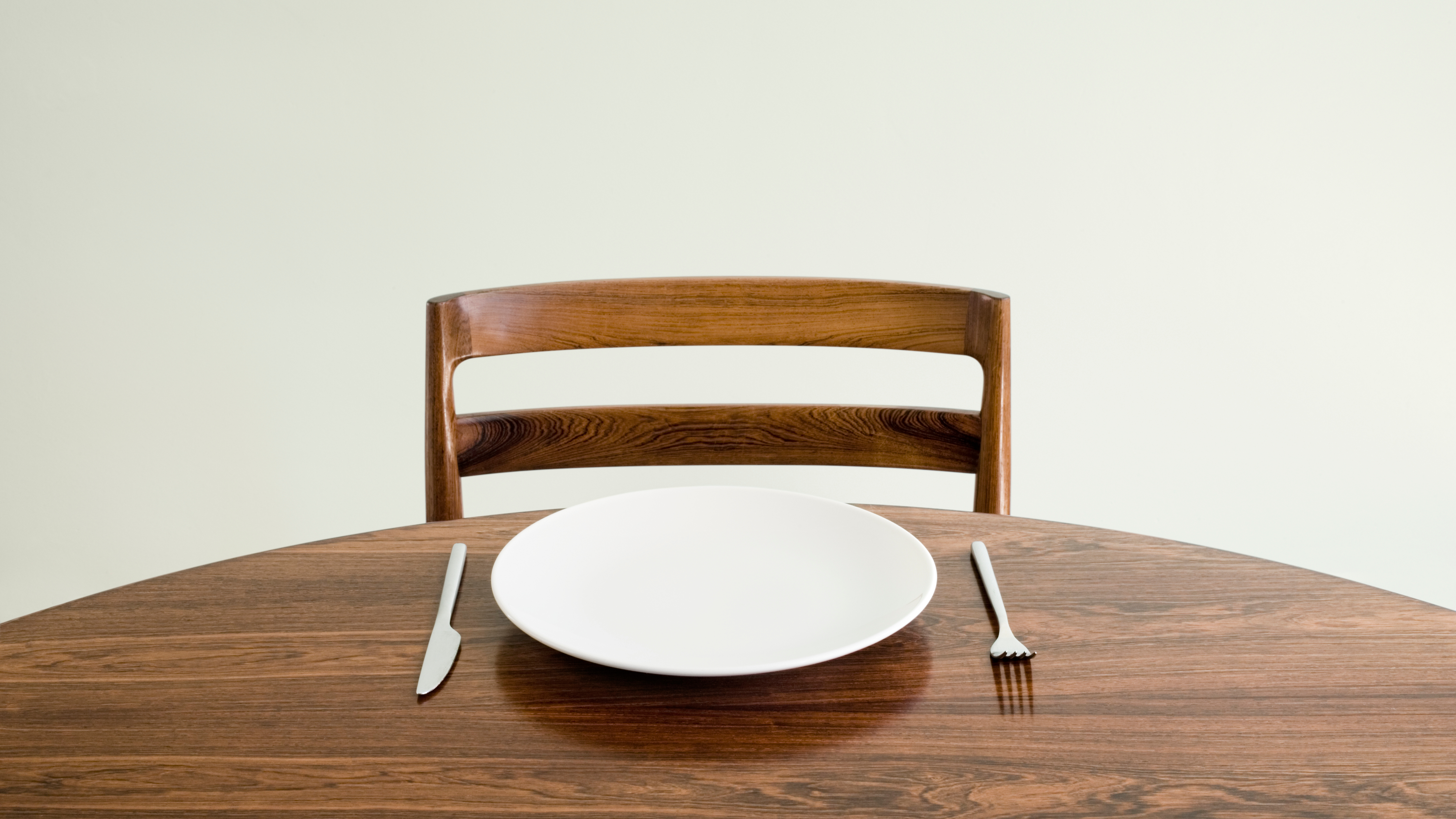The Key To A Long Life Is To Slowly Stop Eating Food Altogether
Good news for those who want to live a long life devoid of the pleasures of food: A new study finds that sharply reducing calorie intake, even among healthy individuals, helps slow metabolism and possibly stall the aging process. Because the body's metabolism slows, people should eat progressively less to maintain the same weight, until you're 112 years old and subsisting completely on oxygen and moonbeams.
Published in Cell Metabolism (and discussed by NPR), the study is one of the first of its kind to test long-term calorie-restriction on humans. Non-obese participants were asked to cut 25 percent of the calories from their diets for two years; in addition to losing an average of 17.6 pounds over that time, the participants displayed "persistent metabolic slowing accompanied by reduced oxidative stress," which are consistent with a slower aging process. They also exhibited decreased blood pressure, cholesterol, and triglycerides levels.
Other studies conducted on animals have concluded that a restricted food intake prolongs life spans. (Does this explain those 120-year-old people we read about, who tell inquiring reporters they subsist on a shot of whiskey and half a French fry every day?) The trouble the study finds with such diets among humans is that they're generally difficult to maintain and can lead to yo-yo dieting or binging. Plus, because restricting food lowers your metabolism, people have to continue cutting calories to maintain their weight.
The authors of the research published in Cell Metabolism caution that their study only took place over a two-year time frame, and a lifetime study would be the only conclusive way to prove that severe food restriction leads to long life. Good luck recruiting volunteers for that, guys.
